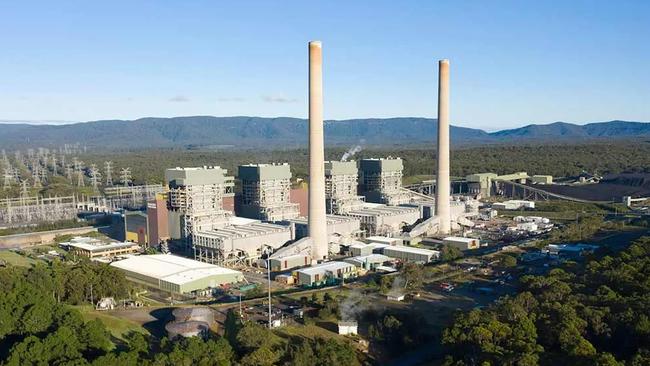
When it comes to electricity, the situation on the east coast has become quite dire, with wholesale prices in the June quarter nearly 170 per cent higher than in the corresponding quarter last year. The gas situation is worse, with recently recorded prices about four times higher than levels that prevailed early in the pandemic.
A climax of sorts occurred recently when the Australian Energy Market Operator was forced to suspend the national electricity market and dictate to suppliers the quantity and timing of electrons required. We are finding out only now the cost of this exercise, with the first of several large bills being sent to retailers. At the same time, several retailers have exited or are about to exit the market.
It is clear the price trigger point for AEMO – $300 a megawatt hour – to suspend the market is too low, with the operating costs of many suppliers above this level. It simply is not plausible to order providers to supply electricity while making substantial losses.
Bear in mind AEMO is continually intervening in the market and has been doing so for years. In the past, the market basically ran itself. But with the rising proportion of intermittent renewable energy and its variability across the day, week and time of year, the grid has become increasingly difficult to maintain. The ancillary services, in terms of inertia and frequency control and that were provided incidentally in the past by coal-fired plants, cannot be taken for granted now.
Anthony Albanese and Climate Change and Energy Minister Chris Bowen seem blissfully unaware of the developing crisis affecting the NEM. Retail electricity prices have gone up recently but these increases will look like small beer relative to what is coming down the pike.
Speaking at an energy conference in Sydney last week, the Prime Minister was still predicting cheap energy and a resurgence of manufacturing. Evidently, we can be an energy superpower because we have a lot of sun and wind. Throw in green hydrogen (which is unproven at scale and at an affordable price) and the energy outlook is extremely rosy, according to him.
Bowen even had the nerve to pat himself on the back for keeping the lights on recently, while claiming the answer lies in increased investment in renewables and additional transmission lines. He seems to be ignoring the implications of the total closure of the Liddell coal-fired plant next year and the large Eraring plant in 2025, coupled with the delay in the commissioning of Snowy 2.0. Most engineers are predicting ongoing stresses on the east coast grid for many years as more coal-fired plants exit.
Optimistic predictions such as those recently released by the CSIRO that increased investment in renewables and transmission coupled with (unproven long-duration) storage will ensure affordable and reliable electricity are not universally embraced by those with direct experience. It is unlikely there will be much more pumped hydro because of our topography, and battery technology has not progressed to anywhere near the degree required to deal with high proportions of renewable energy. Recall that Labor expects renewables will account for more than 80 per cent of electricity by 2030.
The Albanese government has already begun to back away from its commitment that household electricity bills would drop by $275 a year by 2025. According to Bowen, “of course, figures move around”, indicating the figure cited during the campaign no longer has any credibility. In fact, the government will be lucky if average household retail bills increase by less than $1000 a year.
It’s important also to consider the effects of rising electricity and gas prices on businesses. Many of them are much more exposed to fluctuations in the wholesale price than households. Those east coast businesses that need to use gas as a direct input – most food processing, brick making, fertiliser – are being hit hard by the rapid increase in gas prices, in line with overseas trends.
According to Bowen, “renewable energy is more secure, there is no geo-strategic crisis that can impact on the supply of sun to our land and the wind to our shores”. Of course, the sun and wind are of no use without the overseas-supplied equipment that has much shorter lifespans than large-scale plants. Note also the high degree of overseas ownership of renewable installations here, particularly Spanish and French.
The federal government needs to move quickly beyond platitudes to deal with the looming crisis affecting the NEM. There are plenty of lessons from overseas about the problems that arise when an electricity grid has insufficient, affordable 24/7 sources of generation and renewable energy has been promoted at the expense of other fuels.
The European Commission recently has declared both gas and nuclear “sustainable”, paving the way for government funding of new gas and nuclear plants. Having allowed their nuclear power industries to wallow, Britain and France have changed tack to encourage the building of new nuclear power plants as well as extending the life of existing ones.
Even in deep-green California, the governor has sought permission to extend the life of its large nuclear power plant in the face of an unreliable grid and rising electricity prices. (California has been a world leader in promoting renewables.)
Germany, Austria, Italy and Britain have all turned to coal to deal with the actual and foreshadowed shortfall of gas from Russia. It is now acknowledged renewables provide a role but other sources of generation are needed as part of balanced energy policy. The combination of gas shortages and much higher prices in Europe may end up tipping the EU into recession.
Note here that the energy problems confronting Europe predate Russia’s invasion of Ukraine. Prices had begun to ramp up well before then. An extended wind drought affecting both Britain and northern Europe had created havoc with the electricity systems.
The German experience also points to the limitations of renewables as a mainstay of energy policy. Notwithstanding many years of policy ambition and direct and indirect subsidies to renewables, the actual track record points to slow progress (particularly in respect of the rollout of new transmission lines) and a very limited impact on total emissions.
The lesson for Australia is that reliable and affordable energy is a critical ingredient of economic prosperity and community wellbeing. Political bromides coupled with wishful thinking of climate activists, including those running our bureaucracy, won’t do the job.







The mainstream media has been kind to the new Albanese government, excusing the Prime Minister’s lengthy overseas absences as being necessary and in the national interest. But being overseas does not prevent the domestic challenges from piling up, not least growing cost-of-living pressures and higher energy prices. These are in addition to the most recent resurgence of the coronavirus and its implications for a stretched health system.